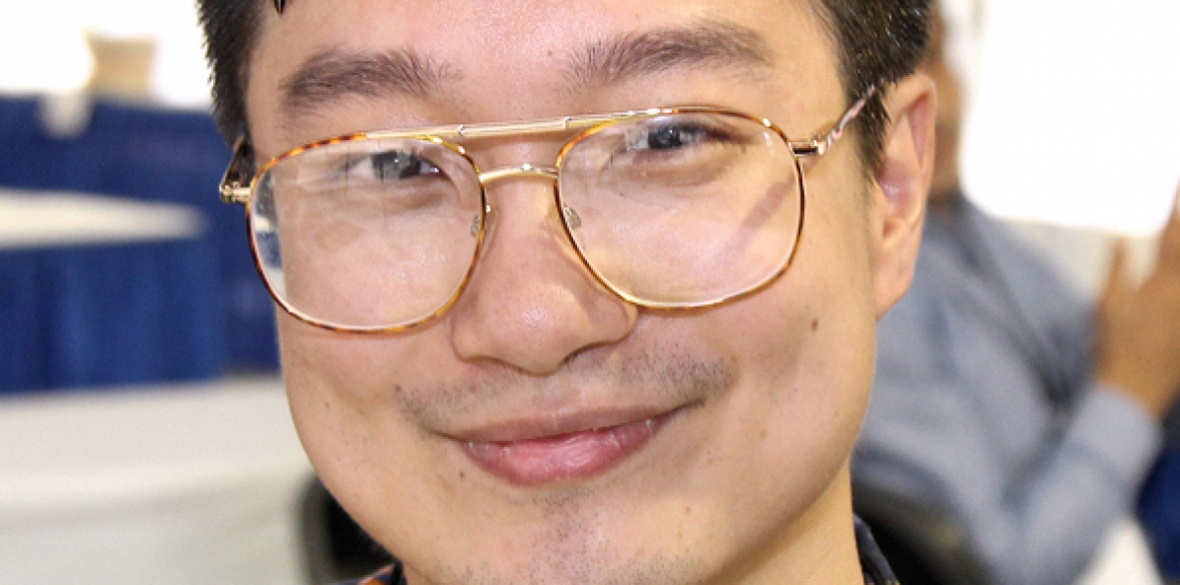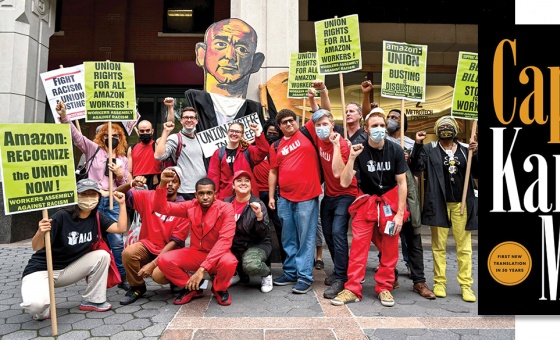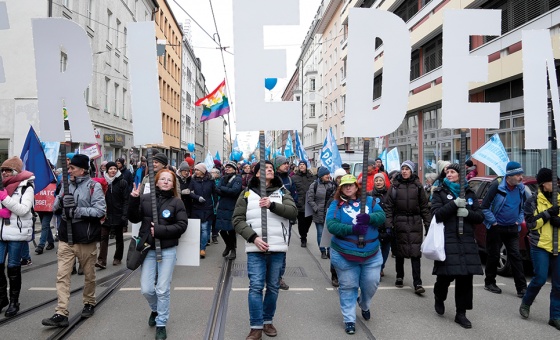This is the last article you can read this month
You can read more article this month
You can read more articles this month
Sorry your limit is up for this month
Reset on:
Please help support the Morning Star by subscribing here
THE CORONAVIRUS has already brought out the best in almost everyone — our common human instincts for solidarity, compassion and co-operation. On the other hand, there are those who are working hard to remind us that the real virus is human selfishness and stupidity.
Which is why the publication of What Saves Us: Poems of Empathy and Outrage in the Age of Trump (Curbstone/Northwestern University Press, £29.50) is so timely and so welcome.
Edited by the great New York-Puerto Rican poet Martín Espada, the book contains work by more than 90 poets, including Kwame Dawes, Juan Felipe Herrera, Richard Blanco, Carolyn Forche, Patricia Smith, Robert Pinsky, Donald Hall, Sam Hamill, Elizabeth Alexander, Doug Anderson, Marge Piercy, Yusef Komunyakaa, Brian Turner, Jim Daniels, Daisy Zamora, Naomi Shihab Nye and Espada himself.
Although it's an expensive book, it is a big anthology and there is not a weak poem between its covers. Definitely one to order when the libraries reopen.
Direct, colloquial and unironic, these poems speak from and for the communities that reflect the unstoppable diversification of US society, by asserting a common humanity in the face of dehumanisation.
Most of the poets in the book seek to embody or express a sense of empathy or outrage, since, as Espada points out, “it is empathy the president lacks and outrage he provokes.”
There are some splendid descriptions of the monster himself: “every time our president’s mouth opens, he pukes a red carpet” (Maria Nazos), “the coiffed like/cotton candy doom,/the chalky delirious face/of our leader, endorsed/by the KKK” (Chen Chen), “this is the truth, well-dressed/and gloating” (Kwame Dawes).
A number of poets try to describe the shock of the 2016 election, notably Ruth Goring, Demetrio Martínez, Naomi Shihab Nye and George Wallace — “and now it’s fuck-all for everyone/except the fat cats and their plastic wives in/golf-carts, country clubs and private towers.”
As Adrian C Louis writes: “we know who is to blame/But... we don’t know what to do.”
Some try to understand the terrible appeal of what Patricia Smith calls the “thanatocracy” now in the White House, while Eleanor Wilner observes that: “Death has seldom had a better season or such/a winning score; he must see to their protection,/these little men who think to be his master –/flatter a fool and make him useful, he thinks,/and smiles benignly, whitely, at his hosts.”
But most address the terrible consequences of Trump and Trumpism triumphant: “I’ll make their black lives barely matter... America, let’s be brash and unsullied again... make this sweet chaos whitefully ours,” observes Patricia Smith.
Jane Hirschfield writes about the closing down of democratic debate in the wonderfully Brechtian On the Fifth Day, Pamela Uschuk about the sound of “Bible hymns hum behind bulletproof doors,” and Dante Di Stefano about a world “where bad men bleed the meek, lie about it,/and smile.”
There are some very good poems here about the demonisation of refugees and immigrants in Trump’s US, notably by Daisy Zamora, Julia Alvarez, Emmy Perez, Marge Piercy, Katherine DiBella Seluja, Carolyn Forche and George Evans who, in Borderline, describes the desperate lives of immigrant workers:
“bellies stuffed with drug balloons, fingers chopped off/from fieldwork, legs trembling from standing at conveyors/all day without food, scrubbing filth, making beds, or waiting/on corners for those who need their labour to show up in trucks/with shovels and picks to ferry them over death’s next river.”
Lawrence Joseph, Paul Mariani and Paul Martínez Pompa write about deindustrialisation, Elizabeth Alexander about police brutality, Maria Nazos and Lauren Marie Schmidt about violence against women.
And there are some fantastic poems about work from William Pitt Root, Gary Soto, Maria Mazziotti Gillan and Yusef Konunyakaa, the climate emergency (Nicholas Samaras) and homelessness (George Evans).
Jan Beatty and Rafael Campo contribute powerful indictments of the US health system and Adam Grabowski and Brian Clements address the appalling problem of school shootings, while Cyrus Cassells, Kwame Dawes, Tim Seibles, Luivette Resto, Juan Felipe Herrera and Richard Michelson take issue with racist violence.
Marty McConnell contributes a stunning poem about the relationship between the White House and white supremacists like Dylann Roof: “the hideous lineage that dogs us and feeds us. Gavel and spit. Rope and bumper and chain.”
And this is from Vietnam Veteran Doug Anderson’s brilliant How Nazis:
“A man sits in his room all day with his demons and talks to them./They have been fouling their cages. They have been jeering at his dreams./He goes to the basement and loads his assault rifle and then emerges/from his cave. And you know the rest. The politicians scan/the surface for the bubbles of rage coming up from below, sing their/feral songs of blame and wrong and create phalanxes of hate./They trot out the usual suspects: foreigners, people of colour, homosexuals... the momentum headed towards the cliff is terrifying. Those who do not join in are dragged along./Here is where God might step in but does not, once more,/stays in the shadows of the scaffolds being thrown up in every square.”
We must all hope that Trump doesn't get the coronavirus. Badly. Very badly.
The Revolutionary Poets Brigade of San Francisco is now accepting submissions for their next anthology Building Socialism, to be released before the November election in the US.
Poems should reflect the hope of constructing a new society and that goes along with it, such as the threat of climate change, the need for immigration reform and elevating the voices of indigenous peoples.
The deadline for submissions is June 30. Poems exceeding three pages will not be accepted and bilingual poems must include the translation and original language. Please send your work to [email protected].











